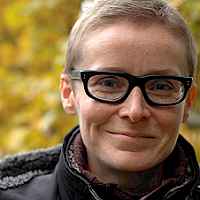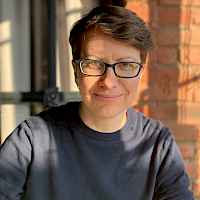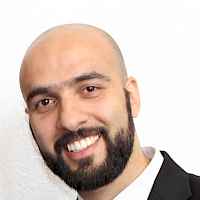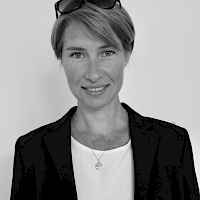Struggles over Europe: Postcolonial East/West dynamics of Race, Gender and Sexuality
- Dr. Paweł Lewicki (Chair)
- Prof. Dr. Randi Gressgård (Chair)
- Dr. Nadzeya Husakouskaya
- Fadi Saleh
- Dr. Daria Krivonos
- Dr. Anastasia Diatlova
- Prof. Dr. Anika Keinz (Discussant)
Although proper Europeanness is associated with former colonial powers, whiteness as identity marker and defining feature of ‘Europe’ is eagerly reproduced by nationalist and right-wing populist movements also outside the European ‘core’, notably in the so-called Central and Eastern Europe. However, this self-whitening tendency is rarely seen as a result of persistent coloniality and hence eminently ‘European’. White supremacy sentiments are entirely distanced from the Enlightenment ideas, and instead attributed to ‘backward’, racist Others. When Europeanness and Europeanization are considered in isolation from global postcolonial dynamics, one distances the European idea and debates about Europeanization from any meaningful consideration of their racial underpinnings.
Along the upsurge of racist discourses, we have witnessed in Europe stark debates about sexual rights and freedoms serving to establish cultural hierarchies. In each their way, resolutions of the European Parliament on ‘basic rights’ in the EU and rhetoric of ‘gender ideology’ in Poland and Hungary have revealed how closely gender and sexuality are linked to European and national identities alike. In this panel, we would like to turn our focus to differently defined notions of gender and sexuality in Europe. How do these categories contribute to the productions of various notions of Europe and European modernity as well as to (self-)produced notions of East and West? How are dynamics pertaining to gender and sexuality expressed locally, and how do they feed into upsurge of nationalism? How are they inscribed into broader dynamics and discourses on Europe, Europeanization and transformations of the (il)liberal state?
-

Dr. Paweł Lewicki
Europa-Universität Viadrina, Vergleichende Mitteleuropastudien
LGBT-free zones: gender politics, citizenship and struggles over Europe in Poland
Since early 2019 around 100 municipalities, counties and provinces in Poland declared to be “LGBT free zones”. None of the documents passed by the local authorities explicitly refer to LGBT people and these documents, officially named as “Local Government Charter of The Rights of The Family” or “A Resolution Against LGBT Ideology”, passed on the initiative of a fundamentalist Catholic organization Ordo Iuris, have no legally binding power. However, together with other changes in legislation referring to kinship, abortion, gender and sexuality introduced by the nationalist-conservative government, these “LGBT free zones” stand for policies that envision a new type of sexual, gender and moral order. On the background of specific Polish, postsocialist, neoliberal and post-EU-Enlargement context, in my contribution I will focus on the phenomenon of LGBT free zones as an emanation of struggle to create new notion of European citizenship in Poland. This struggle has to be framed both in racist and racializing discourses connected to gender and Europeanization and in reciprocal and entangled cultural dynamics co-constituting the East and the West in the EU. In such frames the exclusion of LGBT people from national community is a European process of production of internal others, as an echo of colonial heritage of Europe, migrantisation and racialization taking place in the West of the continent. New sexual and gender politics in Poland show not only the intrinsic conjunction of whiteness and Europe and the struggle over its meaning, but also the emergence of new regimes of power creating new notions of European citizenship as an effect of processes of Europeanization in Poland.
Paweł Lewicki, PhD in European Ethnology (Humboldt-University in Berlin), is an assistant professor at the Chair for Comparative Central European Studies of the European University Viadrina in Frankfurt (Oder). His research interests are postcolonial East/West dynamics of race, sexuality and gender and HIV, borders, migration and (EU) citizenship in Berlin.
-

Dr. Daria Krivonos
University of Helsinki, Department of Cultures, Centre of Excellence in Law, Identity and the European Narratives
-

Dr. Anastasia Diatlova
University of Helsinki, Faculty of Social Science
What to Wear for Whiteness? ‘Whore’ Stigma and the East/West Politics of Race, Sexuality and Gender
Drawing on two ethnographic projects, one among Russian- speaking women engaged in commercial sex, the other among young Russian-speaking migrants in Finland, we interrogate how the construct of Eastern European female body is positioned in relation to the norm of (Western) Europeanness and white femininity. We show how Russian-speaking migrant women in Finland learn of their ‘Russianness’ and ‘Easternness’ through the circulation of the ‘whore’ stigma. We analyse these processes of racialisation and sexualisation in the context of the Finnish national project based on gender equality and women’s liberation norms. While normative Western Europeanness has recently been constructed through emancipated sexuality and the exclusion of non-Western Others as sexually repressed, the bodies of Russian- speaking women are perceived as sexually excessive and in need of toning down. Focusing on the (self-)policing of Russian-speaking migrant women’s bodies and the ways they navigate acceptable and unacceptable forms of gendered self-presentation, we demonstrate how these women are construed as not emancipated enough and hence not quite white. The article thereby contributes to understanding hierarchies of whiteness within the East/West dynamics of race as they pertain to gender and sexuality.
Daria Krivonos is a sociologist based at the University of Helsinki. She defended her PhD dissertation with the title "Migrations on the Edge of Whiteness: Young Russian speaking migrants in Helsinki, Finland" in 2019 at the University of Helsinki. Daria's research focuses on whiteness, labour, and racialisation of post-Soviet migrants, as well as coloniality and race in Eastern Europe. Her current postdoctoral project explores Ukrainian labour migrants in the Polish service economy.
Anastasia Diatlova is a postdoctoral researcher at the University of Helsinki, Finland. She is currently exploring the experiences of Finnish and non-Finish men and gender nonconforming people selling sex in Finland. Her doctoral thesis was a multi-sited ethnographic research on Russian-speaking women engaged in commercial sex in Finland.
-

Prof. Dr. Randi Gressgård
University of Bergen, Norway, Centre for Women’s and Gender Research
-

Dr. Nadzeya Husakouskaya
University of Bergen, Norway, Centre for Women’s and Gender Research
Europeanization as Civilizational Transition from East to West: Racial Displacement and Sexual Modernity in Ukraine
Drawing on an empirical study of LGBT politics in Ukraine, this article foregrounds the civilizational and yet unspoken racialization characterizing Europeanization projects in the context of EU enlargement. Our starting point is that the boundaries of Europeanness coincide with civilizational boundaries of whiteness. We make the case that Europeanization is a profoundly racialized project, where racial whiteness is unmarked as a ‘natural’ adjacency of the West. We treat this dual mechanism of marking and unmarking as an instance of racial displacement, arguing that the predicaments of this dual mechanism are particularly forceful in the context of EU enlargement. More specifically, the article interrogates the ways in which subtle racialized power mechanisms intersect with – while at the same time being obscured by – political instrumentalization of LGBT (lesbian–gay–bi–trans) rights and freedoms in ‘transitioning’ processes involving Ukraine.
Randi Gressgård is professor at Centre for Women’s and Gender Research (SKOK) and affiliated with the research unit International Migration and Ethnic Relations (IMER), University of Bergen. Her research interests span the fields of migration & minority studies, gender & sexuality studies and urban studies.
Nadzeya Husakouskaya is a gender researcher and activist from Belarus. She holds a Ph.D. in Interdisciplinary Gender studies (Bergen University, 2019), MA in Migration and Intercultural Relations (Oldenburg University, 2013), and MA in Cultural and Gender Studies (European Humanities University, 2003). She has fifteen years of experience as a gender educator and researcher. She worked for different human rights and educational organizations, including International Organisations for Migration in Belarus, Belarusian Human Rights House in Vilnius, European Humanities University (both in Belarus and Lithuania), African Centre for Migration and Society in Johannesburg, Centre for Women's and Gender Research in Bergen. In 2018-2020, she was a regional researcher at Amnesty International for Eastern Europe and Central Asia regional office where she focused on violence against women, domestic violence, and LGBTI issues in the region. Currently, Nadzeya works as a freelance consultant and lives in London.
-

Fadi Saleh
University of Göttingen, Institut for Cultural Anthropology
Syrian LGBTIQ returnees and the question of the European “good queer life”
In queer and trans* migration narratives, Europe is often portrayed and understood as the goal, last station, and point of arrival for migrants and refugees. This spatial mono-directionality of migration routes is often tied to hegemonic imaginaries of Europe as the place where one could lead the “good queer life” and where queer life is more livable and enjoyable. Europeanness, thus, becomes tied to such imaginaries and the “good queer life” is often associated with having rights, personal freedoms, safety and better living conditions, and democracy. What happens, however, when some LGBTIQ refugees do not perceive “having rights and sexual freedoms” as equal to “having a good queer life” and decide to leave Europe after arriving? What new routes emerge when some do not follow the “rest to the West” imagined route of LGBTIQ migration?
To answer these questions, this paper focuses on the question of LGBTIQ returnees who decide to leave Europe and return either to their home country or to their “transit” country where they lived before arriving to and getting asylum in Europe. Based on follow-ups to my ethnographic fieldwork, which I conducted in Istanbul between 2014 and 2015, I highlight the stories of some of my interlocutors, all Syrian trans* women, who decided to return to Turkey after reaching and settling down in Europe for some time. By doing that, I hope to open up a space for alternative narratives of queer and trans* migration that problematize the hegemonic association of Europe and Europeanness with “the good queer life” on the one hand, and force us to rethink and revise some of our main methodological and theoretical assumptions about migration, queerness, LGBT rights discourses, and the livable queer life, on the other.
Fadi Saleh is a PhD Candidate at the Institute for Cultural Anthropology and European Ethnology at the University of Göttingen, Germany). In his PhD project, he traces the recent emergence of Syrian LGBTIQ refugees as a constituency in discourses around humanitarianism, asylum, and queerness.
-

Prof. Dr. Anika Keinz
European University Viadrina, Comparative Cultural and Social Anthropology of Late Modern Societies
Discussant
Dr. Anika Keinz studied European Ethnology and Art History at Humboldt Universität zu Berlin and Freie Universität Berlin and received her Ph.D. in European Ethnology at Humboldt-University Berlin in 2007. Previously she was Juniorprofessor of Comparative Social and Cultural Anthropology of late-modern Societies at European University Viadrina in Frankfurt (Oder). Her research interests focus on inequality studies, bodies and discourses of (dis-) belonging, gender studies, europeanization, biography and queer anthropology.
Among other topics, she taught classes on critical migration studies, dis-/belonging, gender politics and citizenship at Humboldt-University, Warsaw University and European University Viadrina and conducted summer schools for Ph.D. candidates both at the University of Minnesota and European University Viadrina on new dynamics of inclusion and exclusion across Europe and North America.
Contributors
-

Dr. Paweł Lewicki
Europa-Universität Viadrina, Vergleichende Mitteleuropastudien
-

Prof. Dr. Randi Gressgård
University of Bergen, Norway, Centre for Women’s and Gender Research
-

Dr. Nadzeya Husakouskaya
University of Bergen, Norway, Centre for Women’s and Gender Research
-

Fadi Saleh
University of Göttingen, Institut for Cultural Anthropology
-

Dr. Daria Krivonos
University of Helsinki, Department of Cultures, Centre of Excellence in Law, Identity and the European Narratives
-

Dr. Anastasia Diatlova
University of Helsinki, Faculty of Social Science
-

Prof. Dr. Anika Keinz
European University Viadrina, Comparative Cultural and Social Anthropology of Late Modern Societies
Join
To take part in the conference please register here. After completing the registration, your login data and further information will be sent to you by email.